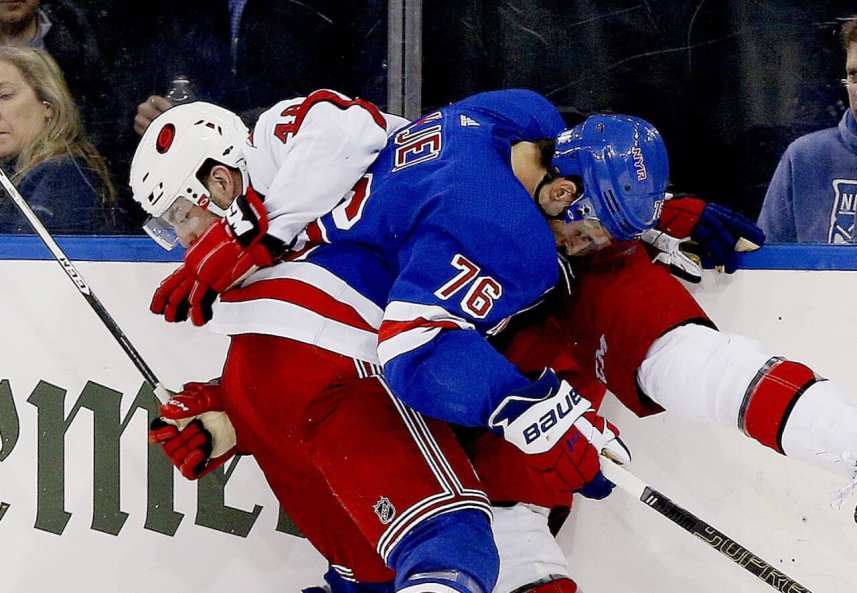
The New York Rangers were experiencing the feeling that many college basketball teams usually experience in March. That is, they were on the bubble as to whether the Blueshirts would be included or not if the NHL decided to return to playing, which of course they did. However, what is known was that throughout the entire process, the more than likely first-round opponent was vehemently against the 24 team format. The Carolina Hurricanes were one of only two teams who voted against the now scheduled format.
Carolina’s objections and proposal
Publically, the Hurricanes had this to say for voting no: player rep Jordan Martinook and his teammates disagreed with the proposal because they felt this created a format that made their road even tougher. “It just kind of limits our odds and makes you play another playoff series, basically. It wasn’t just for our team’s situation,†Martinook told reporters back in May. “You look at teams that had a 10 percent chance to make it, and now they’re pretty much on a 50-50 playing field.â€
Martinook acknowledged that the ideal return to play format would be to finish the regular season, but time was of the essence and the Hurricanes will be ready to play. Finishing the regular season was rejected, mostly for the idea that having teams like the Detroit Red Wings and others who had no shot at the playoffs would needlessly put their players and staff at risk.
This is what the Hurricanes publically said. Later on it came out, via Elliotte Friedman of Sportsnet.ca, that the Hurricanes wanted the Rangers to win four games in their best of five series in order to advance. In a move that sounds like it comes from the playground sports bully, the Rangers could be up 3-1 going into the final game, only to lose game five, but they would not advance because they did not win the required four games. This in spite of the fact that the Rangers would have won the series 3-2.
Were the Carolina Hurricanes living up their "bunch of jerks" nickname when they voted against the NHL's playoff proposal? ? (via @HackswithHaggs)https://t.co/WBJEGFXjXX
— NBC Sports Boston (@NBCSBoston) May 26, 2020
Besides being fair to those teams like the Rangers who still had a chance to make the playoffs, the appeal for the league’s 24 team format is to have more fan bases involved and create more excitement. Which is exactly what the NHL is getting by including the Rangers, Canadiens and Blackhawks, three Original Six teams.
There were other proposals that were rejected that would have helped the Rangers
First of all, the idea of a 16 or 20 team playoff was not initially considered to eliminate the Rangers, but to exclude teams like the Canadiens and Blackhawks, teams who had less than a 10% chance of making the Western Conference playoffs. But in the end, the idea that teams who had a decent shot to earn a spot should not be eliminated.
The idea that could have benefited the Rangers the most was the round-robin proposal to determine the top 16 teams. In this proposal, the top six teams in each division would play in this format. As the Rangers finished seventh but had a much higher points percentage than the Buffalo Sabres, they would have been placed in the Atlantic Division. The NHL liked this idea because it would guarantee that regional media markets would have had at least five games to broadcast. In the end, the top teams were not in favor of this, feeling that it did not give them enough of an advantage for finishing high in the standings. The league was also somewhat fearful that too many top-seeded teams could be eliminated in this format. Point systems to try to address these issues became too complicated, and the round-robin was scrapped.
Realistically, it would not have been far fetched to see a healthy Rangers team go 4-1 in this format, no matter what division they were placed in.
In the end, the NHL and NHLPA did the best they could to come up with a format that was fair to as many teams as possible, while giving players and fans a chance to gain some closure on this unusual season.